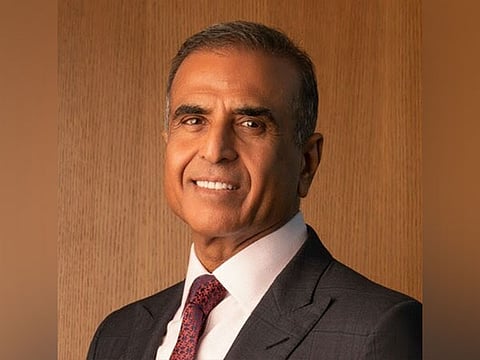

NEW DELHI: Telecom Czar Sunil Mittal on Wednesday said that his call for both telecom and satellite communication to come together to provide better connectivity globally has been heard and acted upon.
The founder of Bharti Airtel, India’s second-largest telecom service provider, said that this collaboration will introduce one more technology into the mix: SAT-G, just like 4G, 5G, and 6G.
Mittal expressed confidence that the global satellite and telecom industries will respond to his call to combine their strengths and capabilities.
“For the telecom industry, the addition of satellite technology should be no different from bringing new technologies to its customers. Just like 4G, 5G, and 6G in the future, we will now have one more technology in our mix, i.e. SAT-G,” said Mittal.
His statement came after Bharti Airtel and Reliance Jio announced their partnerships with Elon Musk's Starlink to provide satellite-based broadband services in India. Both Indian telecom providers stated in separate press releases that upon receiving authorisation from the government for SpaceX, they would explore opportunities to complement each other's offerings and enhance SpaceX's direct-to-consumer services.
Furthermore, Airtel and Jio will offer Starlink solutions through their retail outlets and online platforms. Mittal noted that this partnership will soon enable customers to use their mobile devices even in the most remote areas of the world, including in-flight and at sea.
“In my opening remark at the recently concluded Mobile World Congress 2025 in Barcelona, I made a call to both the telecom and satellite players to work together, combine their strengths, and complete the mission of connecting the unconnected, covering the oceans and the skies as well as difficult-to-reach areas. I am glad that this is being followed through with active announcements of partnerships between satellite companies and telecom operators,” said Mittal.
According to Deloitte, India's satellite service sector is poised to grow 36% annually, reaching USD 1.9 billion by 2030. To provide satellite communication services in India, operators require a Global Mobile Personal Communication by Satellite (GMPCS) license. Currently, the Indian government has granted licenses to Bharti Group-backed OneWeb and the Jio-SES joint venture, Jio Satellite Communications. Meanwhile, Elon Musk's Starlink and Amazon's Project Kuiper have applied for licenses but are yet to receive approval.
Starlink operates over 6,000 LEO satellites, while Bharti Enterprises, led by Sunil Mittal, backs Eutelsat OneWeb's satellite network, comprising over 630 satellites. Reliance Industries' Jio Platforms has partnered with Luxembourg's SES to provide satellite communication services in India, leveraging SES's fleet of around 70 satellites in two orbits. However, the Indian government is still to announce modalities and pricing for satellite spectrum allocation.
“I had made a similar appeal in my keynote address at the Mobile World Congress in 2017 for operators to slash roaming charges, which were preventing customers from carrying their home networks and seeking local SIMs or Wi-Fi hotspots. The industry responded favorably; roaming rates went south, and the international home network switch-on rates shot up. Today, roaming tariffs across the globe are affordable,” said Mittal.